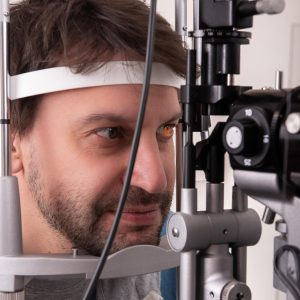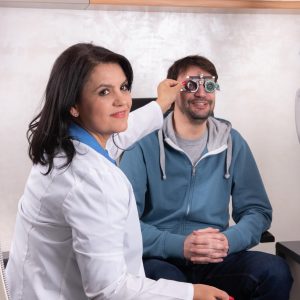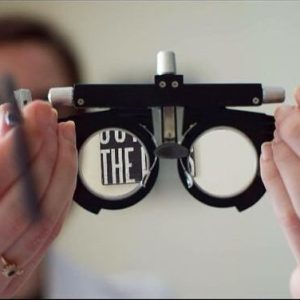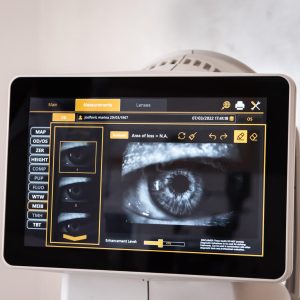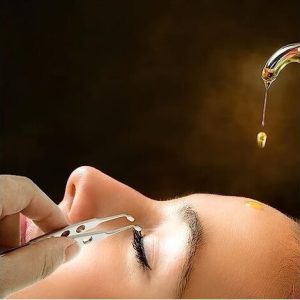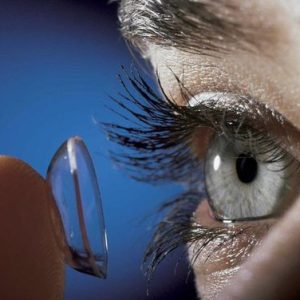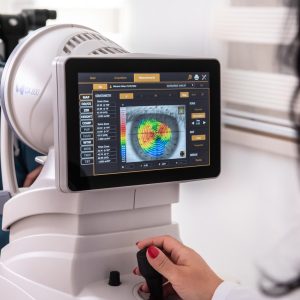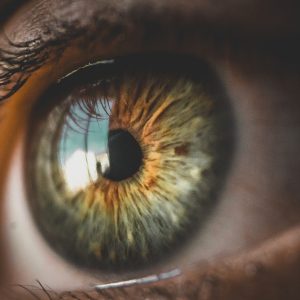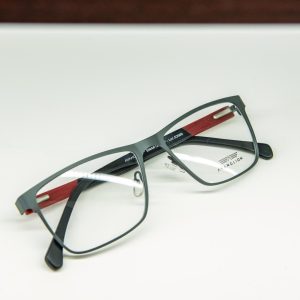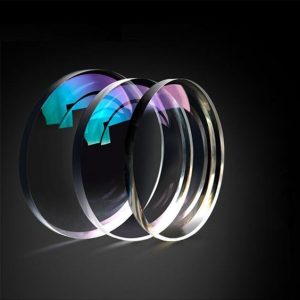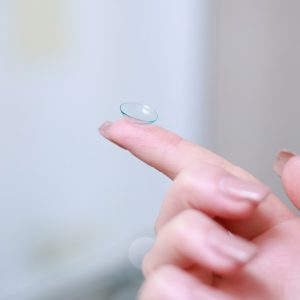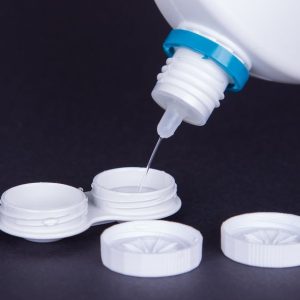Contact lens appointment with training
LENSES
Contact lens appointment
The problem with vision can be corrected in three ways:
- glasses,
- contact lenses
- and more recently by surgical correction of refraction.
Contact lenses are optical aids, thin and light, made of a special plastic material. They are placed directly on the eyes (on the cornea or on the cornea and sclera). Between the cornea and the contact lens there is a space filled with tears, which is very important in wearing the lens, because the cornea itself has no blood vessels and it actually “breathes” through this layer of tears. The contact lens corrects the refractive error by changing the refractive power of the eye at the level of the cornea, significantly canceling its front refractive surface, whereby it itself becomes the most important element in the optical system of the eye.
Purpose of contact lenses
Apart from the optical role, contact lenses are also used for therapeutic purposes to protect and heal the cornea. The cosmetic role is based on changing the color of the eyes or for prosthetic purposes due to medical indications to improve the external appearance of the eye (due to congenital defects or acquired changes in the visible part of the eye). Leonardo Da Vinci described and made the first contact lens made of glass, and it was not until four centuries later that the first contact lens worn on the eye was made. In our region, the official clinical application of contact lenses began at the end of the 70s of the last century.
Contact lens classification
The classification of contact lenses can be based on the type of material they are made of, indication for wearing, water content, wear and replacement period, design, manufacturing method, oxygen permeability, color and length of wear.
According to the type of material from which they are made, they are divided into:
- hard, gas impermeable – Hard (PMMA) CL
- hard, gas permeable – Rigid Gas Permeable (RGP) CL
- soft-hydrogel (HEMA) CL
- hybrid – Hybrid CL
According to the length of wearing, they can be for:
- daily wear (during the day)
- flexible wearing (during the day and occasionally at night, extended up to 7
day and night) - continuous wear (up to 29 days and nights)
- occasional daily wear depending on needs (sports and
social events)
According to replacement period:
- daily
- biweekly
- monthly
- three months
- annual
The most common reason for solving vision problems with contact lenses is of an aesthetic nature, but there may also be medical reasons such as high myopia, high astigmatism, a large difference in diopter between the eyes.
Advantages of contact lenses compared to glasses
The advantages of contact lenses compared to glasses are: better visual acuity, maximum correction in both eyes and in cases of diopter difference, no limited field of vision by the glasses frame, no fogging of the glasses,
blisters on the frame on the nose or behind the ear, the need to frequently take off and put on glasses, playing sports…
The contact lens cabinet of the Vesta practice has a large number of trial sets of both soft and hard gas permeable (RGP) lenses.
Contact lens fitting
The contact lens cabinet of the Vesta practice has a large number of trial sets of both soft and hard gas permeable (RGP) lenses. For fitting or adjusting contact lenses, we use a topographer that maps the surface of the eye at more than 100,000 points and thus determines the best design that suits your eye.
Why is Vesta Eye Clinic the right place for contact lens training?
At Eye Clinic Vesta, we especially stand out by providing a complete service related to contact lenses. Our contact lens examination covers all aspects necessary for safe and comfortable lens wear, from the initial examination to expert training. Our team of certified contact ophthalmologists guarantees that you will receive the highest quality service and advice.
Complete review for contact lenses
A contact lens examination is a specialized ophthalmological examination that first assesses the condition of your eyes and determines which type of contact lenses are most suitable for you. Our certified contact specialists use advanced technology to accurately determine the diopter and lens type that best suits your needs. The examination includes a detailed examination of the anterior segment of the eye, a visual examination, as well as an evaluation of the tear film.
Certified Contactologist
Our certified contact specialists are experts in fitting (adjusting) and providing all information regarding contact lenses. They have specialized training and experience that allows them to recommend the most suitable lenses for your eyes. Whether you need soft, hard or specialty contact lenses, our board-certified contact specialist will provide you with detailed information and answers to all your questions.
Training for contact lenses
One of the key parts of our service is contact lens training. After examining and selecting the appropriate lenses, our experts will provide you with comprehensive training that includes proper lens fitting, removal, and maintenance. Contact lens training is especially important for beginners, but it is also useful for experienced wearers who want to improve their skills and learn more about new types of lenses.
